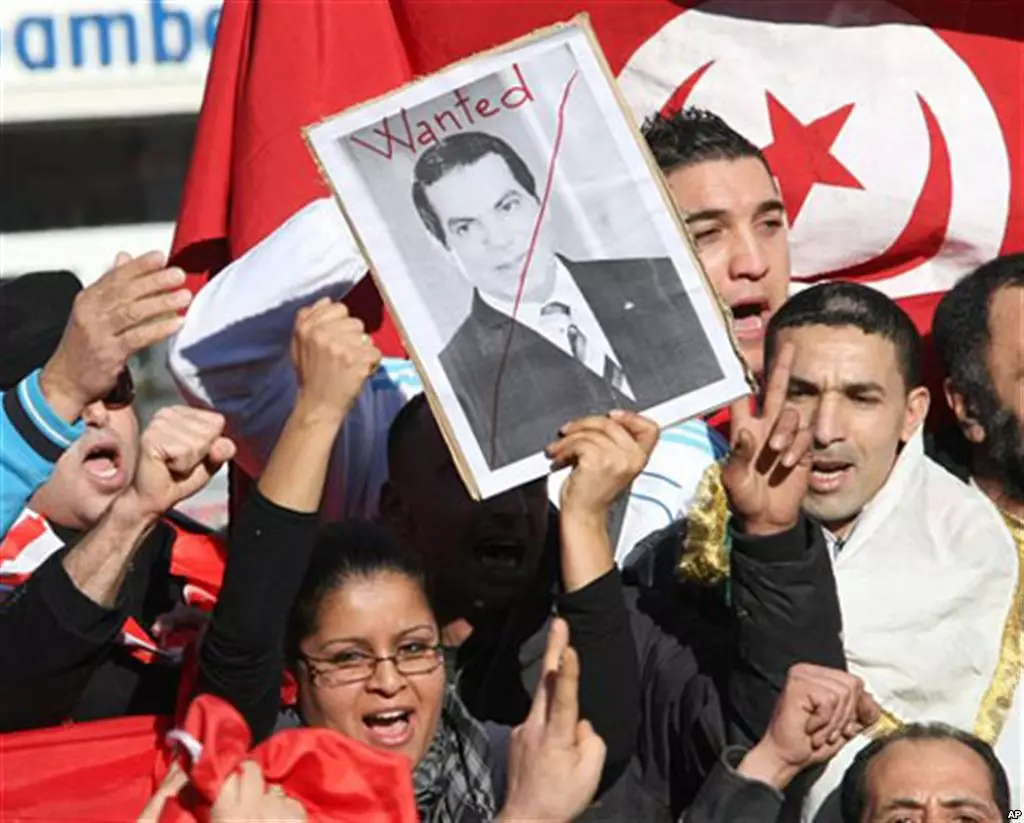Tunisians want their stolen money back from West: Nabil Mikhail

 An analyst says that after ousted president Ben Ali ran away with the country’s money to complicit foreign banks, Tunisia continues to suffer harsh economic times.
An analyst says that after ousted president Ben Ali ran away with the country’s money to complicit foreign banks, Tunisia continues to suffer harsh economic times.
In the background of this, protesters in Tunisia have thrown rocks at the president and shouted slogans after he made a speech marking the second anniversary after the start of the revolution in Tunisia that spearheaded the Arab Spring across the Middle East. Tunisians are angry over poverty and high unemployment that has not improved as a result of their revolution.
Press TV has interviewed Mr. Nabil Mikhail, Professor at George Washington University, Washington about this issue. What follows is an approximate transcription of the interview.
Press TV: It is the anniversary of the man who set himself on fire because of the dire situation in Tunisia experienced at that time. Today as we speak the demands of the people are the same. So, what has changed?
Mikhail: Many things changed: the regime changed; the world’s view of Tunisia and other countries in the area; also inside Tunisia itself – the demand of freedom has become a policy that is to be implemented. But it is difficulty to implement it. This is why not too many people are happy and they are still disenchanted with the situation.
Revolutions are periods of high expectations and the economies and the social political systems in most of the “Arab Spring” countries are struggling just to meet the minimum demands of the populations.
So, it’s time for the West to de-romanticize the Arab Spring movement because it led to harsh economic and political realities. And a course of action may take years in order just to stabilize the situation, not to achieve prosperity. You have to de-romanticize it.
Press TV: Some point to the rise in sectarian strife in Tunisia, how much is that visible do you think?
Mikhail: It is visible and from what we read it is also visible in urban cities and urban centers.
The question is can the Tunisians reach consensus? One advantage Tunisia has for instance over Egypt is that foreign policy crises will not impact the economy negatively. For instance, any situation or any development in Gaza or Sinai will impact Egypt negatively, but Tunisia somehow is immunized because of its geography from the turmoil in Libya to whatever can happen in the other areas.
But so far the political elite of Tunisia that came on the heels of the revolution have somehow immunized itself from the public and also it could not establish quick economic policies.
This is why there could be more changes in Tunisia and it’s better for America and the West to understand that revolutions in the Arab world are a process. It’s a process it’s an agonizing development and America better basically approach the area from a realistic perspective. You have to have a realistic perspective.
Tunisia basically speared the movement towards the first round of Arab revolutions. Tunisia also could be the country where other courses of actions, revolutionary and others, could follow suit. We have to keep watching this important country.
Press TV: What chance is there that ousted president Zine El Abidine Ben Ali and the money he took out of Tunisia will be returned back to Tunisia?
Mikhail: That depends on Europe and America because these are deposits in foreign banks.
My advice to the Tunisian government in order to stem the tide of this content is to campaign aggressively and basically even try to bargain with something for them to get the money stolen from the people. It is that simple.
A corrupt leader bankrupted his nation. The people in that nation are entitled and have the full right to gain back the money and the wealth that was stolen from them.







